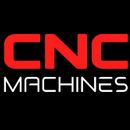Case Studies of Successful CNC Implementation in Small Businesses

Case Studies of Successful CNC Implementation in Small Businesses
In today's competitive manufacturing landscape, small businesses are increasingly turning to CNC (Computer Numerical Control) machines to enhance their operations, improve efficiency, and expand their product offerings. This article explores real-life case studies of small businesses that have successfully integrated CNC technology into their processes, highlighting the challenges they faced and the benefits they achieved.
Case Study 1: BC Custom Furniture
Background
BC Custom Furniture is a small, family-owned business specializing in handcrafted wooden furniture. With a growing customer base and increasing demand for custom pieces, the owners realized they needed to enhance their production capabilities.
Challenges Faced
- Manual Processes: The traditional woodworking methods relied heavily on manual labor, which was time-consuming and limited the complexity of designs.
- Quality Consistency: Ensuring uniformity across multiple pieces was challenging, leading to occasional customer dissatisfaction.
Implementation of CNC Technology
ABC Custom Furniture invested in a CNC router to automate their cutting and shaping processes. The machine allowed them to create intricate designs with precision and speed.
Benefits Achieved
- Increased Production Speed: The CNC router significantly reduced production time, allowing the business to fulfill orders faster and take on more projects.
- Enhanced Design Capabilities: With the CNC machine, the company could produce complex designs that were previously impossible, attracting a broader customer base.
- Improved Quality Control: The consistency offered by CNC machining ensured that every piece of furniture met the same high standards, leading to increased customer satisfaction.
Case Study 2: Precision Metal Works
Background
Precision Metal Works is a small fabrication shop that specializes in custom metal components for various industries, including automotive and aerospace. As demand for their products grew, they faced challenges in meeting tight deadlines.
Challenges Faced
- Labor Shortages: Finding skilled labor for manual machining processes became increasingly difficult, impacting production schedules.
- Inefficiencies in Workflow: Manual machining was time-intensive, resulting in longer lead times for customers.
Implementation of CNC Technology
To address these challenges, Precision Metal Works purchased a CNC milling machine. This investment allowed them to automate machining processes and improve workflow efficiency.
Benefits Achieved
- Reduced Labor Costs: The CNC milling machine minimized the reliance on skilled labor, allowing existing employees to focus on higher-value tasks.
- Faster Turnaround Times: Automation enabled the shop to produce components more quickly, reducing lead times and enhancing customer satisfaction.
- Expanded Production Capacity: With the ability to run multiple jobs simultaneously, Precision Metal Works was able to take on larger contracts and increase overall sales.
Case Study 3: Artistic Signage
Background
Artistic Signage is a small business that designs and manufactures custom signs for local businesses and events. As demand for personalized signage increased, the owners recognized the need to improve their production capabilities.
Challenges Faced
- Limited Design Options: Traditional sign-making methods restricted their ability to create intricate designs and custom shapes.
- Time-Consuming Processes: The manual cutting and finishing processes were labor-intensive, affecting their ability to meet customer demands.
Implementation of CNC Technology
Artistic Signage invested in a CNC plasma cutter to enhance their production capabilities. This technology allowed them to cut various materials with precision and create custom shapes easily.
Benefits Achieved
- Expanded Product Offerings: The CNC plasma cutter enabled the business to offer a wider range of sign designs, attracting new customers.
- Improved Production Efficiency: Automation reduced production times, allowing the company to fulfill orders more quickly and take on larger projects.
- Higher Profit Margins: The efficiency gained from CNC technology allowed Artistic Signage to lower production costs while maintaining high-quality standards, resulting in improved profit margins.
Conclusion
These case studies illustrate the transformative impact of CNC technology on small businesses across various industries. By investing in CNC machines, these companies successfully overcame challenges related to labor shortages, production inefficiencies, and design limitations. The benefits achieved—such as increased production speed, improved quality control, and expanded product offerings—demonstrate the value of CNC technology in today’s competitive manufacturing landscape.
As small businesses continue to embrace automation and advanced manufacturing technologies, the potential for growth and innovation in the CNC machine industry remains significant. By learning from the experiences of these successful companies, other small businesses can explore how CNC technology can enhance their operations and drive long-term success.


